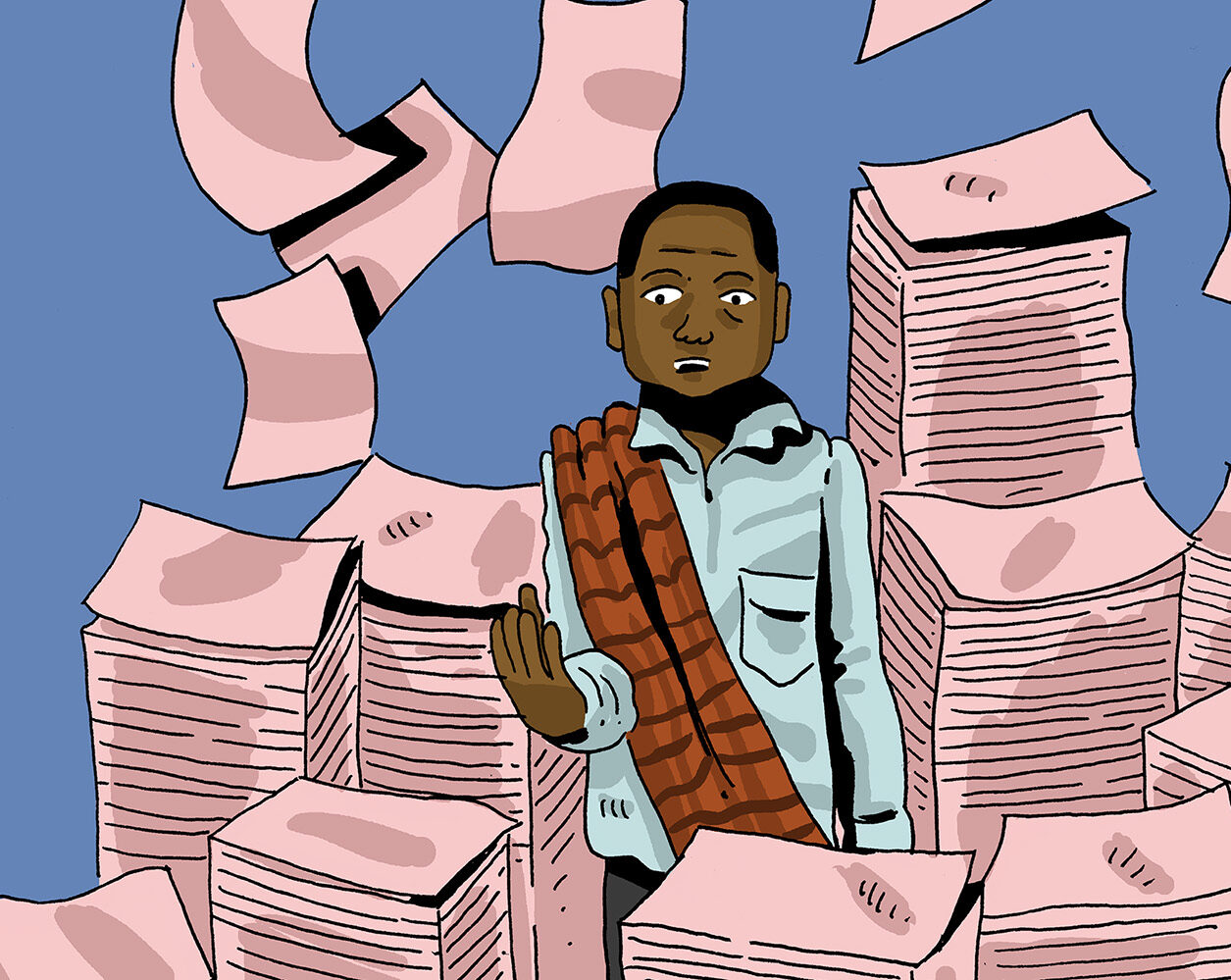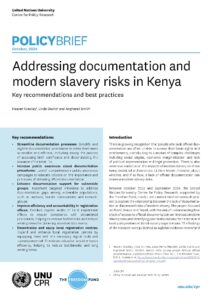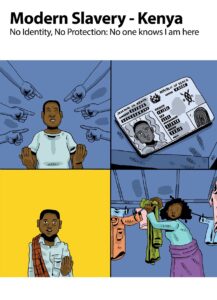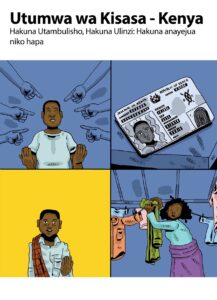A recent study by the United Nations University Centre for Policy Research (UNU-CPR), with support from the Freedom Fund, highlights the connection between lacking official documentation and increased vulnerability to modern slavery in Kenya. Many individuals without official documents face barriers in accessing their fundamental rights, contributing to social exclusion, economic hardship, and vulnerability to exploitation. This lack of documentation impacts many vulnerable populations – including nomadic groups, orphans, migrants, asylum seekers and refugees – underscoring the need for targeted solutions.
The newly released Policy Brief and comics (in English and Swahili), focusing on Kenya, emphasises that without documentation, people face restricted access to essential services, safe employment, and legal protection. While some individuals remain undocumented intentionally, most are excluded due to legal gaps, bureaucratic inefficiencies or discrimination. Displaced persons, migrant workers, and minority groups often struggle to obtain or retain critical documentation, limiting their livelihood options and pushing them towards unregulated sectors. For asylum seekers and refugees, delays in obtaining identification create prolonged instability, hindering access to legal work and increasing the likelihood of exploitation.
Read the Policy Brief below to see targeted recommendations aimed at supporting policymakers and civil society.
Explore powerful comics by PositiveNegatives to see how people in Kenya navigate life without legal documents, and the challenges they face.






